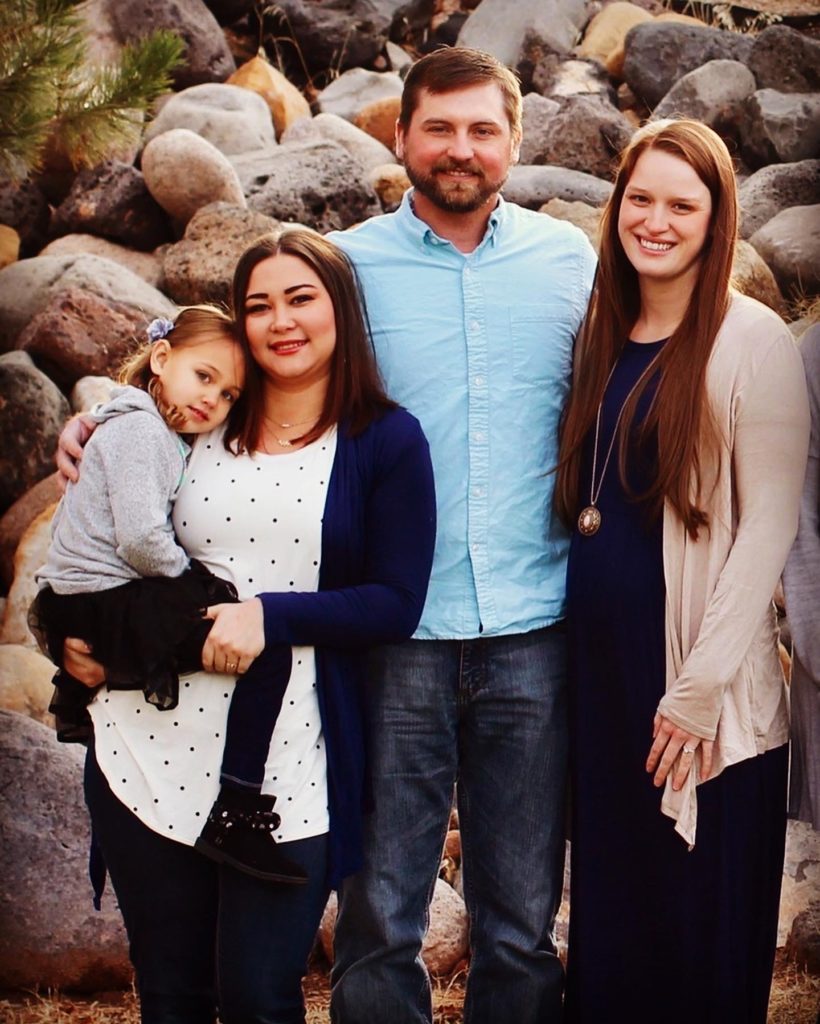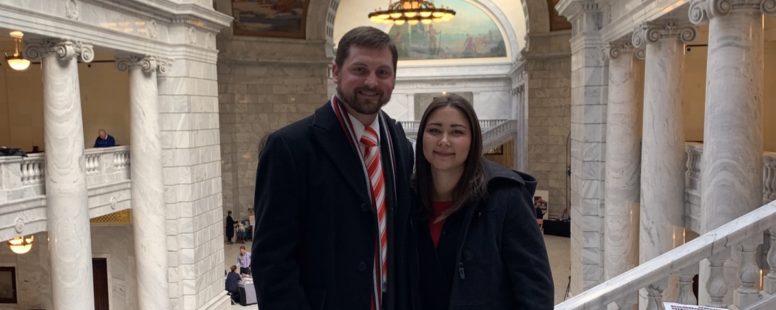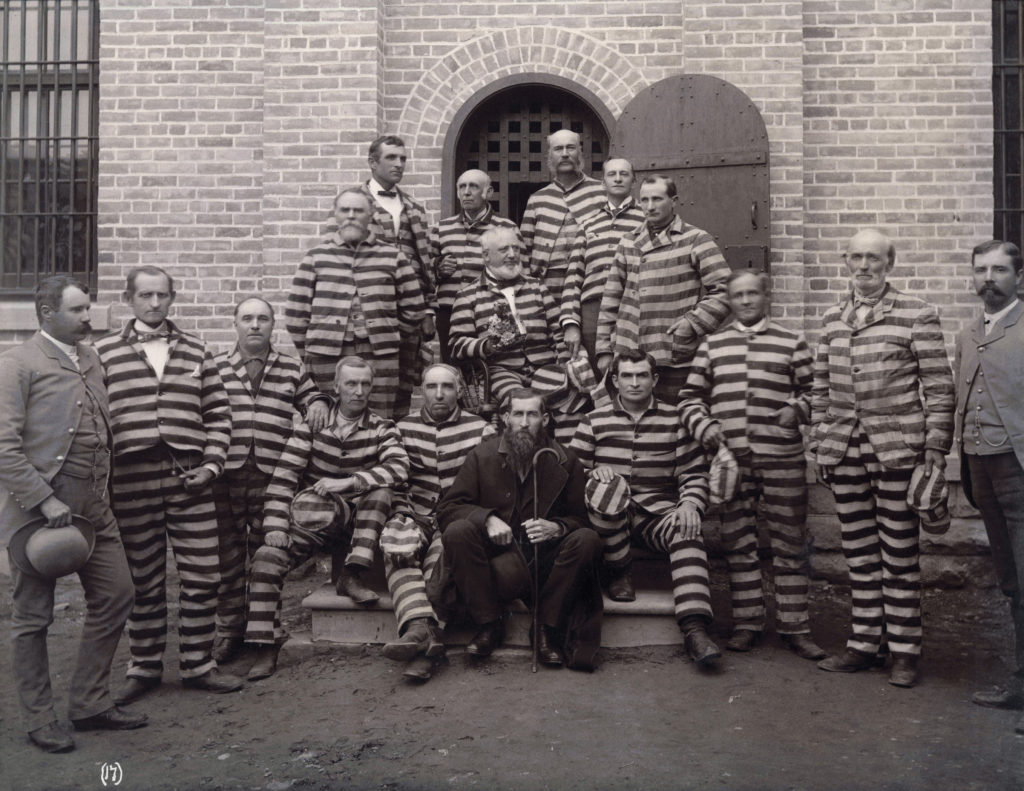
In 1890, the president of the mainstream LDS Church issued a manifesto counseling the members of the Mormon church in Utah to stop participating in polygamous marriages. I had several ancestors living in the principle of plural marriage at this time, but one of their stories in particular has always stood out to me.
My great-great-great grandfather had three wives and lived in a small community on the Arizona Strip, near the border with Utah, called Moccasin. When the manifesto of 1890 was released, he feared that he would be unable to continue living with his wives and perpetuating the practice of plural marriage within the United States, so he chose to leave his home, his extended family just over the border in Utah, and his life of relative comfort and make a long and difficult trip to the newly-founded Mormon colonies southwest of Juarez, Mexico.
Life was difficult for them in their new home, but they were industrious and worked hard with their neighbors to establish Zion, a place of purity and love, in a foreign land. A few years later, my ancestor was murdered by thieves for a barrel of molasses, leaving his wives and children without a husband, father, and breadwinner. His brother traveled down from Utah to assist the family, and they made the long trek back to their previous home.
I’ve often thought about his motivation for uprooting his family and making that dangerous change of scenery. From what I’ve studied, it seems that the two biggest motivators in this change were fear and faith. It may seem like an oxymoron that fear and faith would motivate together, but he feared losing his family and his religion, and had faith that in a new land he would be able to keep both, despite the risk and danger.
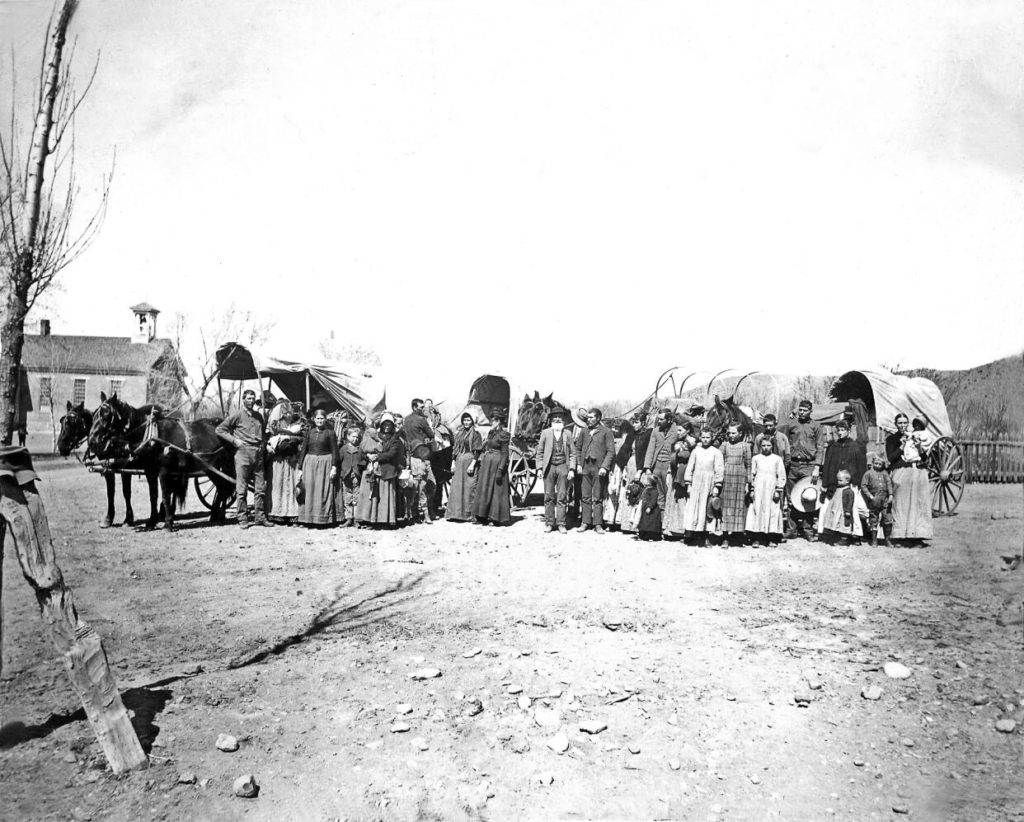
The rest of my ancestors that had lived in plural marriages continued to do so quietly, moving into the shadows in their small communities in their remote corner of Southern Utah. They kept their heads down, kept quiet, and hoped that they wouldn’t be targeted. Within a generation or two, all of my ancestral lines had given up the principle and followed the path that the mainstream church and the state government had laid out for them. This was the end of plural marriage in my family.
Over the following years, fear of prosecution and persecution drove those continuing to believe in plural marriage into the most isolated reaches of Utah and the West. Though previously a federal felony, plural marriage became a felony under state statutes in Utah in 1935. Between the 1940s and 50s, police raids were conducted against communities of fundamentalists, fathers were jailed, and mothers were separated from their children, some for years. A wall of fear and mistrust grew between polygamists and the rest of the world around them.
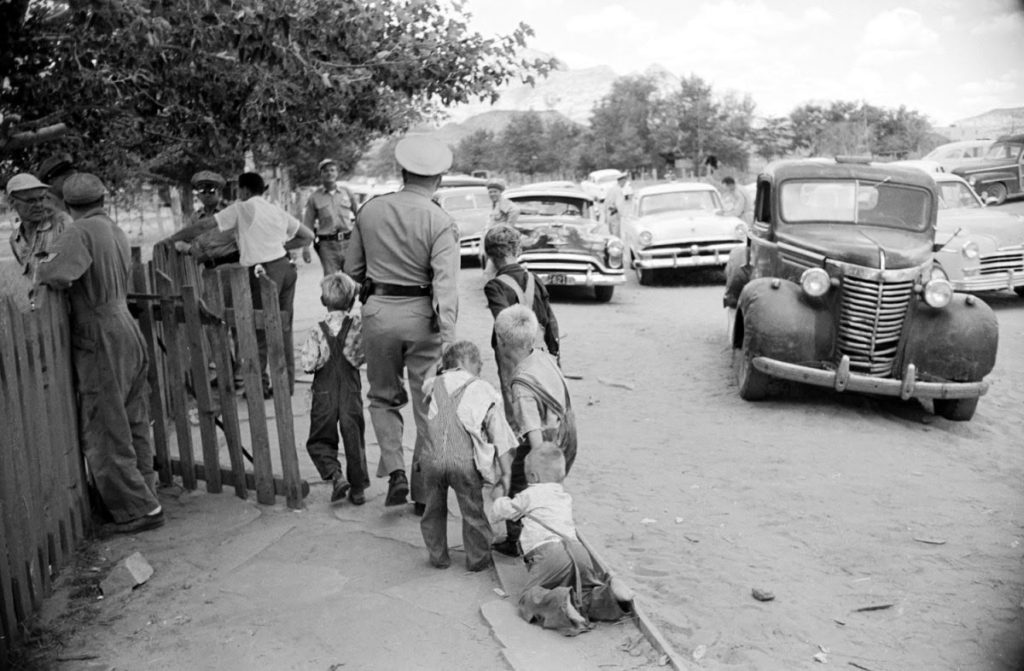
In this darkness, wicked men began to use that wall of fear and mistrust. They used that wall to keep the world out and their victims in. They began to abuse these innocent, marginalized people and over the pulpit they turned that fear into a weapon to assure an absolute silence. We’ve all heard the horror stories of polygamy. No one is responsible for the abuse except the abusers, but the state of Utah bears a degree of complicity in creating a dark environment for that abuse to thrive like a pernicious illness.
In February of this year the legislature in Utah was presented with a bill that lowered a conviction for unlawful cohabitation (aka polygamy) between consenting adults to the level of an infraction. For 85 years, it’s been a felony. Past attempts to enforce this law and the continued presence of it in Utah’s statutes has lead to isolation and marginalization of entire communities of people. This bill doesn’t legalize polygamy and the laws in Utah will still be the harshest laws against it in the western states. When polygamy coincides with some other crimes, including fraud and abuse, it will become a second-degree felony. If it’s entered under coercion or fraud, it will be a third-degree felony. For families like ours, however, a conviction for polygamy would now be on par with a traffic ticket.
We sent emails to senators and representatives. Tami and I made a trip to the Capitol in Salt Lake City to speak to our legislators. We’re grateful that there’s a light at the end of the tunnel. We’ve been praying that wisdom will prevail on our Capitol Hill and we will continue to do so. It passed through the Senate unanimously, and passed through the House with 70 yay votes and 3 nay votes. After another vote in the Senate, it will be on its way to the governor’s office for his signature or veto. This is a big step in Utah, and a much needed show of good faith and goodwill. We want to publicly thank those senators and representatives in our state who have supported this bill and work tirelessly for the good of the residents of this beautiful state.

We’re grateful particularly for Senator Henderson and the hard work and effort she’s invested in this bill and in seeing it through to completion. We’re thankful to Representative Snow for sponsoring the bill in the House. We’re grateful to our local senator and representative as well for their votes in support. We want to thank the other families that have worked so hard for this day. Families in Utah like the Dargers, the Browns, and others have been working on this for decades and we recognize their efforts. We’re grateful for all of the other supporters of this bill, and our friends that have expressed their support.
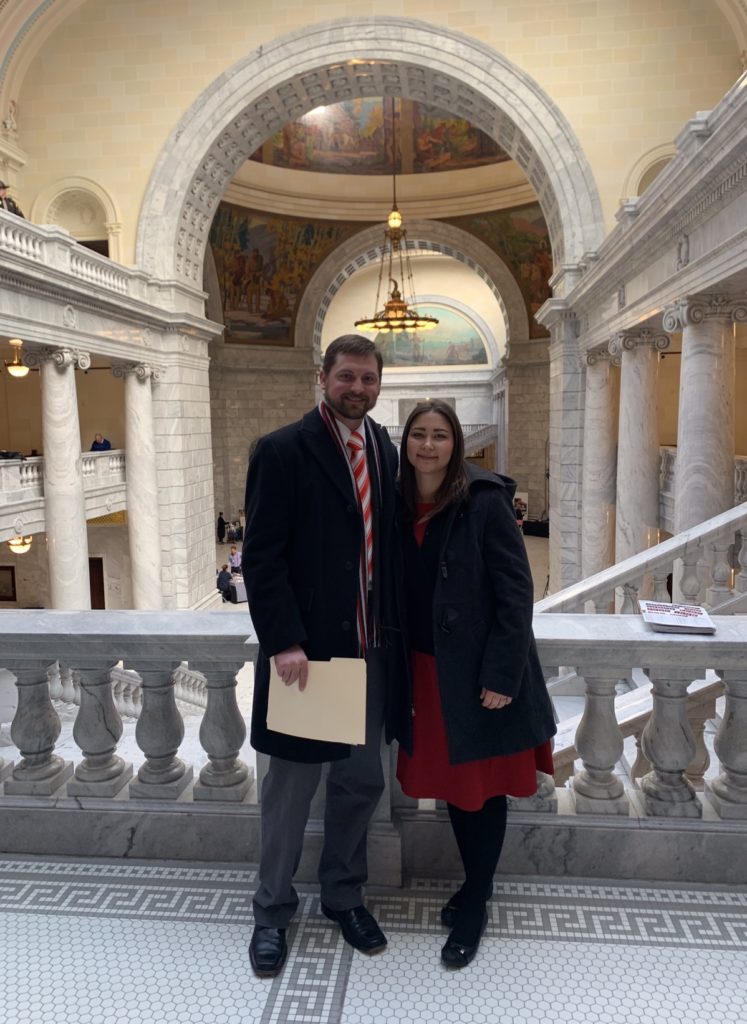
We’re thankful as well for the opponents of this bill. We recognize that there has been a lot of hurt and a lot of abuse. We appreciate them for voicing their concerns for victims and their desires for justice and safety. We hope we can put our differences aside to make our world a safer place. Some of them may feel that their voices weren’t heard. I hope they know and recognize that many of us on the other side did hear them and we can empathize with their concerns and experiences. The pain they’ve experienced can’t be undone. We only hope that we can save others from pain like that in the future.
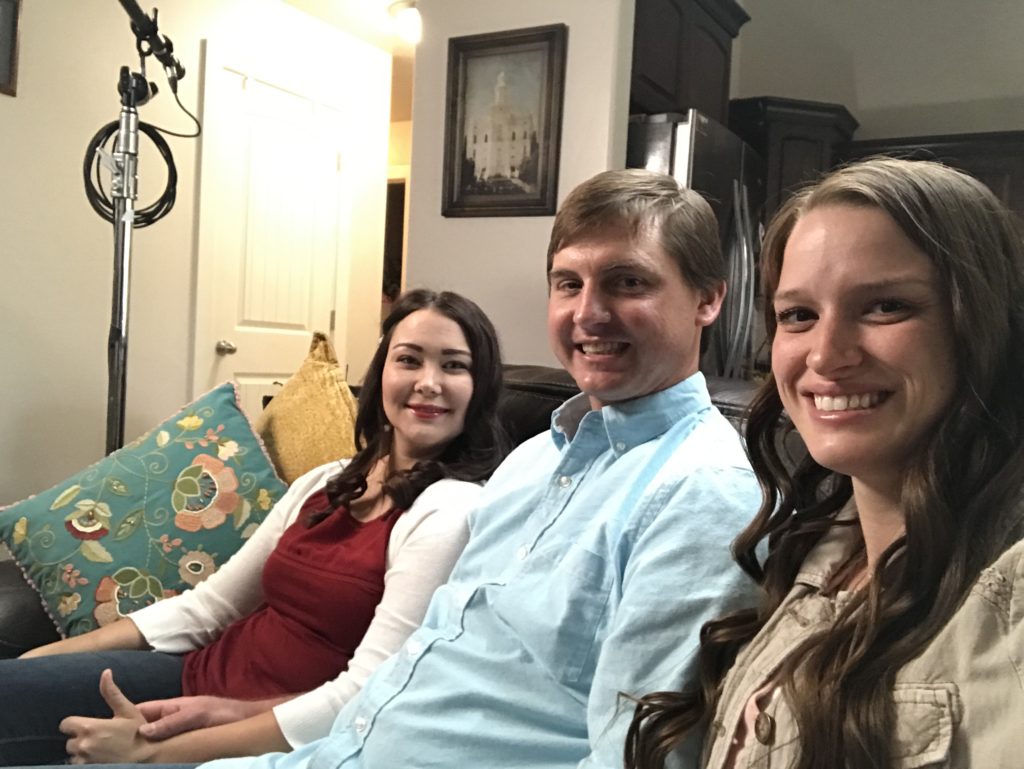
Our decision to appear on a television show was not one we made lightly. We understood that there were risks involved in speaking out so publicly as a family in a plural marriage. We hoped that by speaking out, we could have some influence, even small, in changing the law so that families like ours didn’t have to live in fear anymore. I don’t pretend to believe that we had much of an influence. We’re newcomers in this fight. In 2017, following a lawsuit the previous year in which a judge ruled against Utah’s polygamy statute, Tami and I participated in a rally during the legislative session when unlawful cohabitation was reclassified once again as a felony. We were dismayed when it was signed into a law, undoing the ruling of the previous year and again making felons out of a large number of families in Utah. We were grateful for the opportunity to speak out then, and we’re thrilled to be able to speak out now in support of a bill that will reduce harm and encourage openness. This is the entire reason that we chose to open ourselves to public scrutiny and to step into the light.
I don’t know what my ancestor would have ended up doing had he not been murdered. I don’t know where he would have ended up. If not for the force of law and fear of persecution, he very well may have stayed at his quiet home on the Arizona Strip and lived a long, full life. If not for the force of law and fear of prosecution, maybe the later generations of polygamists never would have moved into such marginalized isolation. They could have remained as part of mainstream society and continued to interact with their neighbors and be a part of the greater communities in our state. That’s not the reality of what happened though. Plural marriage was made a felony. All we can do now is try to pick up the pieces and put these communities and victims back together. This bill is a big step and a great start.
